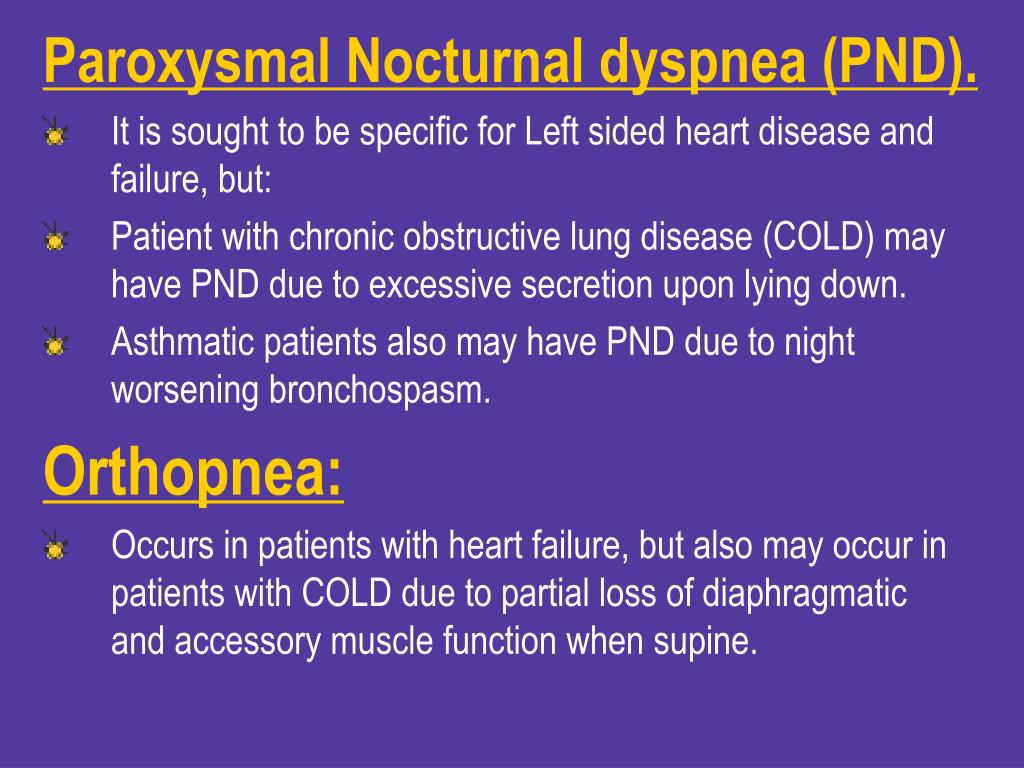

Medical News Today has strict sourcing guidelines and draws only from peer-reviewed studies, academic research institutions, and medical journals and associations. Learn more about the relationship between acid reflux and shortness of breath here. psychogenic disorders, which refer to the physical illnesses that occur due to emotional and mental stressors, such as anxiety.Other health conditions that may cause PND include: pneumonia, an inflammation of the lungs.chronic obstructive pulmonary disease, which refers to a variety of lung conditions that cause breathing difficulties.asthma, a chronic condition that affects a person’s lungs.Some respiratory conditions that trigger PND include: myocardial ischemia, a form of heart disease.acute decompensated heart failure, a sudden worsening of heart failure symptoms.Some heart conditions that may cause PND include: It can then build up in the lungs, which causes shortness of breath. This leads to swelling if the heart is unable to handle the extra fluid. When the heart stops working correctly, the body produces renin, an enzyme that triggers fluid and sodium retention. Heart failure occurs when the heart struggles to pump blood throughout the body. Healthcare professionals associate PND, alongside orthopnea, as specific symptoms of heart failure. This increases pressure in the pulmonary veins, causing fluid to leak into the lungs, resulting in shortness of breath.Ī 2016 article notes that approximately 90% of all dyspnea cases are due to a lung or heart condition. However, in those with orthopnea, the left ventricle of the heart cannot pump out the additional volume of blood. This does not trigger any symptoms in most people. This can result from a redistribution of blood when the body becomes horizontal. Orthopnea occurs due to congestion in the lungs when a person lies down. Similarly to PND, symptoms can improve when a person sits or stands. The same article states that, unlike PND, orthopnea symptoms can occur when a person is awake. Orthopnea occurs when a person feels breathless when they are lying down. However, symptoms improve when a person wakes and sits up. One 2011 article notes this often happens 1–2 hours after they fall asleep. PND causes difficulty breathing during sleep, causing people to wake up due to shortness of breath. PND and orthopnea both cause breathing problems while a person is lying down.


 0 kommentar(er)
0 kommentar(er)
